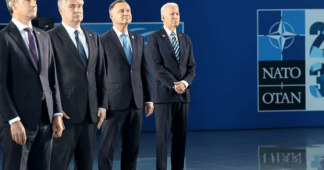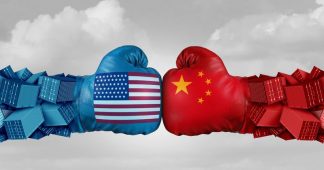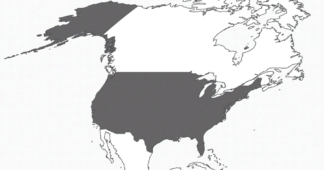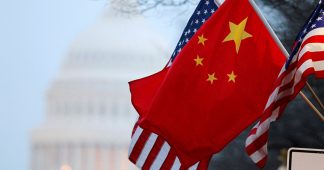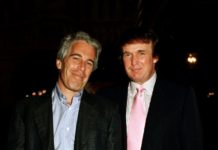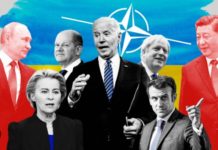By Anuradha Chenoy
China has released three foreign policy documents in quick succession, one year after the Ukraine Conflict that lay out the Chinese vision of the international system and the geostrategies path they are likely to follow. The quick message is that China provides an alternate vision for the working of the international system and the period of China’s engagement with hegemonic powers is over.
The first ‘Global Security Initiative’ (February 21, 2023) [i] is a vision paper that calls for ‘common security’ which should be comprehensive, cooperative ad sustainable unlike competitive security. This paper continues with earlier appeals made by President Xi Jinping for negotiated settlements to all conflicts, opposes unilateralism and hegemonism. This paper presents an international alternative to the hegemonic vision on geopolitics- shown in the Table below:
| Issue | Hegemonic Position (US+West) | Chinese Alternative |
| Protecting national Sovereignty and territorial integrity | Interventions in states; regime change; colour revolutions | Respect national sovereignty and no intervention in internal affairs of other states |
| International law | Rule based order is selective use or violation of I. Law to suit hegemon. Unilateral | Rule based order violated principles of international law; multilateral and international law based approach |
| Sanctions and export | Unilateral sanctions- economic war against select states | Accept sanctions only when mandated by UN Security Council |
| Overall approach to security | Cold War mentality: competitive security; based on exclusion, targeted use of force; | Common Security; comprehensive, cooperative, focus on negotiation; inclusion of all; regional security |
The second document is the Chinese view of US positions currently and historically, ‘US Hegemony and Its Perils’[ii] is the sharpest and direct attack on US foreign hegemonic policies in recent times. It alleges that the US foreign policy ‘playbook’: intervenes in the domestic politics of states through colour revolutions, instigates regional disputes; directly launches wars, clings to Cold War strategies, continually abuses export controls, forces unilateral sanctions, is selective in the use of international laws; imposes rules to suit themselves under a ‘rules based order’.
This document each of these claims through exhaustive and fact based lists of examples. It goes back to the Monroe Doctrine through the Bush-Obama to current US wars and interventions, cites numbers of killed and states destroyed by the US. The Paper concludes that US ambitions for hegemony are ‘unilateral, egoistic, and regressive practices’ that are now drawing criticism and opposition from the international community. Further, China opposes all forms of hegemonism and rejects intervention in others internal affairs.
This document is the clearest chargesheet that the Chinese have made against the US in decades. It clearly posits the Chinese views as strongly opposed to the US. It addresses the Global South and asks them to be vary of the great hegemon.
The third is a position paper for a broad pathway that can lead to a political settlement for the ‘Ukraine crises’ (February 24, 2023). Of course the actual terms of any such settlement have to come from the parties to the conflict and the Chinese do not attempt that. In its 12 points, the Chinese consider of absolute importance, respecting national sovereignty, point to the necessity of ‘abandoning the Cold War mentality’, underline the need of a European security structure that avoids bloc confrontation based on exclusive and competitive security.[iii] The Chinese call for a ceasefire, an end to hostilities, resumption of peace talks. They also ask for steps to reduce strategic nuclear risks, propose steps for resolving humanitarian crises and advocates steps for normalising trade, maintaining grain supplies and industrial safety. It reiterates the traditional Chinese opposition to unilateral sanctions. This paper shows the way forward to all disputes but at the same time seems to warn that the Cold War mindset will block the way.
Timing of the Documents
The Chinese have timed these papers come after one year has shown an escalation of US positions towards Russia and China and the Ukraine war highlight the changes in the war and NATO positions. The background of this year in Chinese view is:
- The US is increasingly hostile towards China. Every national security and strategy document of the US sees China as the main threat to US hegemony and advocates curtailing and containing China. [iv] The Chinese response has been muted so far as they have tried to engage with the US on the economic, trade, bilateral, multilateral, diplomatic fronts. But US positions continue hardening.
- The US has sidestepped as and when they want, the 1970’s agreements on the One China policy, stepping up arming of Taiwan; actions like the visit of House Speaker Nancy Pelosi, supporting Taiwan pro-independence parties that upsets the status quo that held for decades.
- US trade policy towards China crafted by Janet Yellen of ‘friend shoring’ i.e. trade between friends- targets and excludes China, ‘de-coupling’ industries and manufacturing away from China, has shown China that they need to prepare for alternatives to US.
- Sanctions like the ‘Chip Act’ that prohibits China from accessing specific sensitive technologies have been put in place.
- US policies in the Indo-Pacific from Agreements like the QUAD, AUKUS (Australia, UK US) that have a military component like providing nuclear submarines to Australia; US push to revive military bases and step up arming Philippines and South Korea have enhanced Chinese threat perceptions.
- War talk by US officials and especially the recent Hearings of the US Congress Select Committee related to China, that show the bipartisan support to enhance military preparedness targeting China.[v]
- US officials have been fanning the China and Russia threat across the world. Pressuring states to sanction Russia and provide weapons to Ukraine and simultaneously talking of Chinese threats, Chinese debts on account of the BRI etc.
All these actions are seen by China as hostile acts by the US that China needs to respond to.
Lessons Learnt from the Russian Experience:
The Chinese have learnt many lessons from Russia-Ukraine proxy war.
- There is enough evidence to show NATO has high stakes in continuing this proxy war till they achieve their agenda weakening Russia and promoting regime change; US involvement in the Ukraine civil war, coup, and arming Ukraine; the betrayal by NATO leaders of Russia multiple times from expanding NATO to signing the Minsk Agreements only to hoodwink Russia while they prepare. The Chinese now believe that it is better not to take the words of the collective west seriously and they can say one thing and not hold even to formal signed agreements.
- Ukraine is being systematically destroyed and held up entirely by Western military and financial support. There is little interest in the lives and safety of the Ukrainian people and no negotiations are visible or probable. Taiwan can follow a similar fate.
- The US has bombed the Nord stream Pipeline in an act that goes against their own ally- Germany and so are willing to go to any lengths to maintain their hegemony in globally. Germany has accepted this. Chinese draw the lesson that the Europeans can as easily betray the Chinese if the US requires them to.
- The Chinese have witnessed that the US assessment that the Russian economy will collapse because of Western unilateral sanctions has failed and Russia remains economically resilient.
- NATO’s assessment that Russia would run out of weapons and missiles very soon also failed, as Russian military industrial capacity has proved very capable of churning out the artillery needed and in fact it is NATO that is running out of weaponry.
The Chinese Geostrategic Projections
The Chinese geostrategic position that emerges from these three position documents clearly affirms:
- The Chinese are committed to the construction of a multipolar world and oppose hegemonic politics.
- The Chinese at this juncture see themselves in a position to challenge US hegemonism economically, technically, politically and possibly militarily- though they would like peaceful plural global environment.
- China is addressing the West but also making an appeal to the Global South through these position papers.
- The Chinese appear to have concluded that the US will target them soon militarily, economically, technologically in a hybrid war and they need to be fully prepared. This is evident from US National Security documents and bi-partisan statements made in the US Congress Select Committees on the PRC in recent times.
- The Chinese have come to the conclusion that in any conflict with the West, their strongest ally will be Russia. This is because the trust between Russia and West is broken and hard to repair and that Russia sticks to its word and does what it says.
- Chinese geostrategic positions are very similar to those the Russians. Both challenge US hegemony. Russia and China have similar geostrategic vision on most international issues from no foreign intervention in Eurasia, opposition to NATO expansion, etc.[vi] They both argue for a common security as opposed to the competitive and exclusive security of the West. The Russians would agree with every point in the Chinese chargesheet on US hegemony.
- Russia has vast resources that China needs like oil, gas, and other commodities. Further despite contradictions the Russians have proved to be reliable partners to the Chinese historically, and the ‘limitless friendship’ is genuine. Russia is not just a major Eurasian power that the Chinese need for strategic depth, but it is also a Pacific power with great infrastructure- whether the ports of Vladivostok, the railways, the pipelines, the Russian Far East resources. The Russians have been able to take on all of NATO with little effort. The Chinese have admired the Russian war strategies in Ukraine and against NATO. Also, the Russians share the Chinese world view which is the construction of a multipolar world and is anti-hegemony.
China’s geostrategic positions show an important shift. The Chinese will no longer take a subdued position vis-à-vis US policies that seek hegemony. Their earlier position to focus on trade and the Chinese economy and stand back on international issues has shifter to a more assertive one. This does not mean that China will engage militarily with the US on distant conflicts. Nor will the Chinese initiate or join any military pact or even alliance. Only that China is ready to take on any superpower on the question of Taiwan and their interests in the Pacific. China is saying this loud and clear, especially to the Global South.
–#–
(Adjunct Professor Jindal Global University and former Dean, School JNU)
[i] Ministry for Foreign Affairs, People’s Republic of China, Global Security Initiative Concept Paper, 21 February, 2023, At: https://www.fmprc.gov.cn/eng/wjbxw/202302/t20230221_11028348.html
[ii] Ministry for Foreign Affairs, People’s Republic of China, ‘US Hegemony and its Peril’, 20 February, 2023, at: https://www.fmprc.gov.cn/mfa_eng/wjbxw/202302/t20230220_11027664.html
[iii] Ministry for Foreign Affairs, People’s Republic of China, ‘China’s Position on the Political Settlement of the Ukraine Crises’ 24 February, 2022, at: https://www.mfa.gov.cn/eng/zxxx_662805/202302/t20230224_11030713.html
[iv] The Senate Strategic Competition Act, 2021. https://thediplomat.com/2021/04/senates-strategic-competition-act-will-make-china-us-relations-worse-not-better/
[v] US Congressional ‘House Arms Service Committee Meeting on PRC (at: https://www.youtube.com/watch?v=UHSjrLbO1DY)
[vi] President’s website: http://en.kremlin.ru/supplement/5770
We remind our readers that publication of articles on our site does not mean that we agree with what is written. Our policy is to publish anything which we consider of interest, so as to assist our readers in forming their opinions. Sometimes we even publish articles with which we totally disagree, since we believe it is important for our readers to be informed on as wide a spectrum of views as possible.

